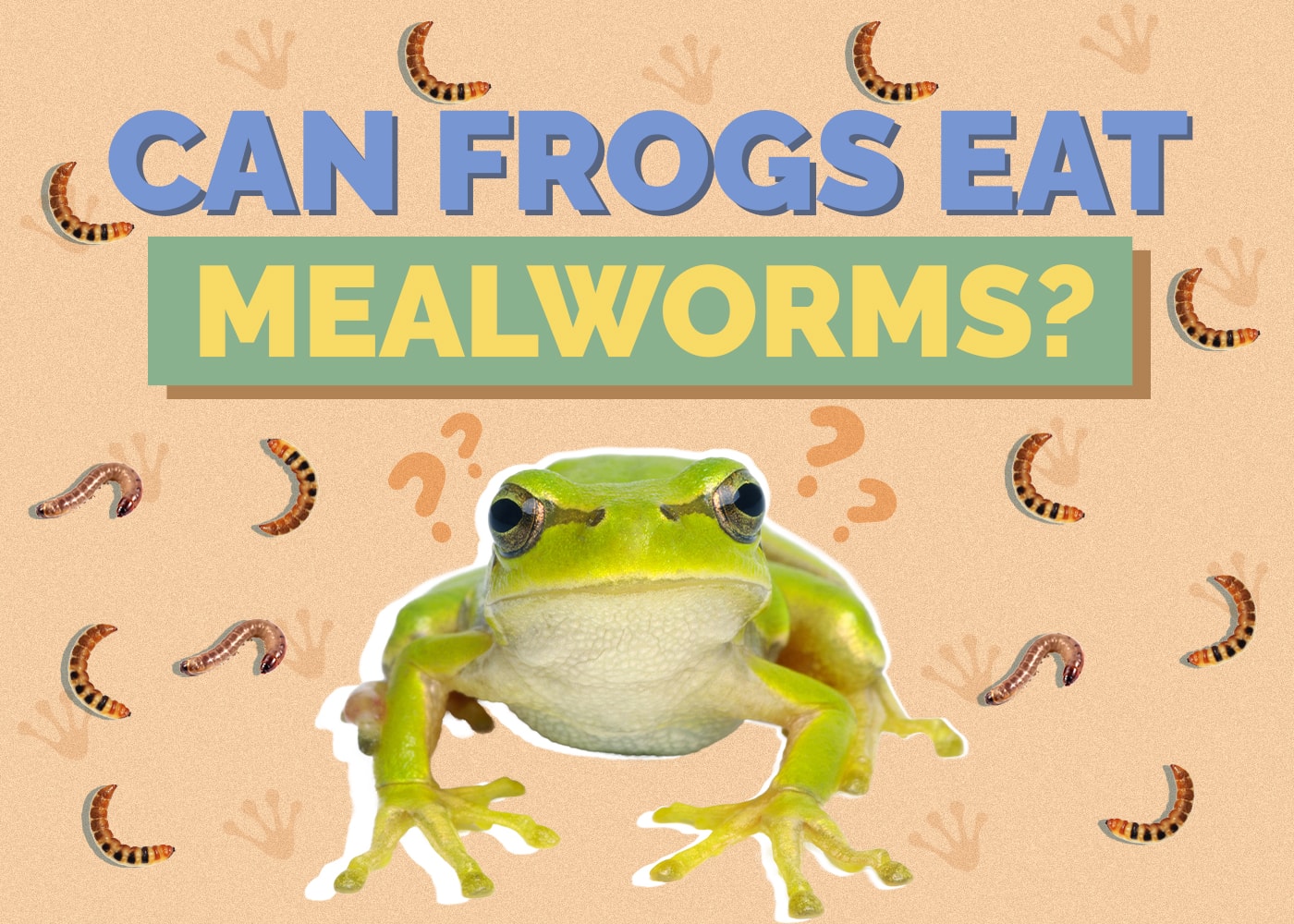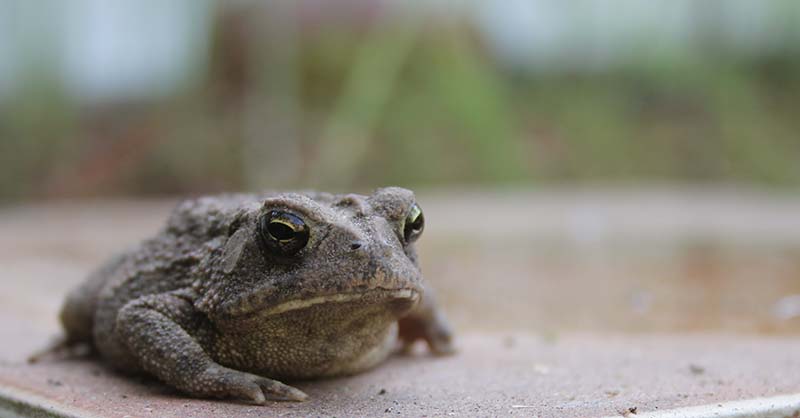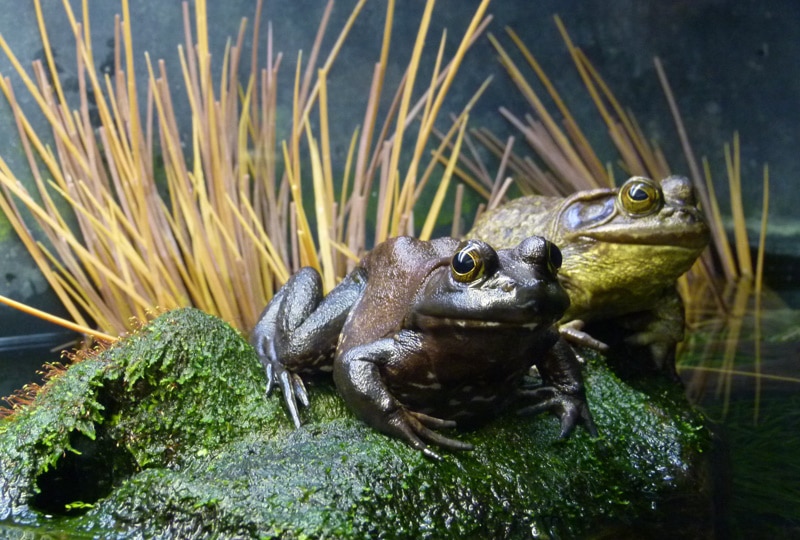Can Frogs Eat Ants? Vet Approved Facts & FAQ

Updated on
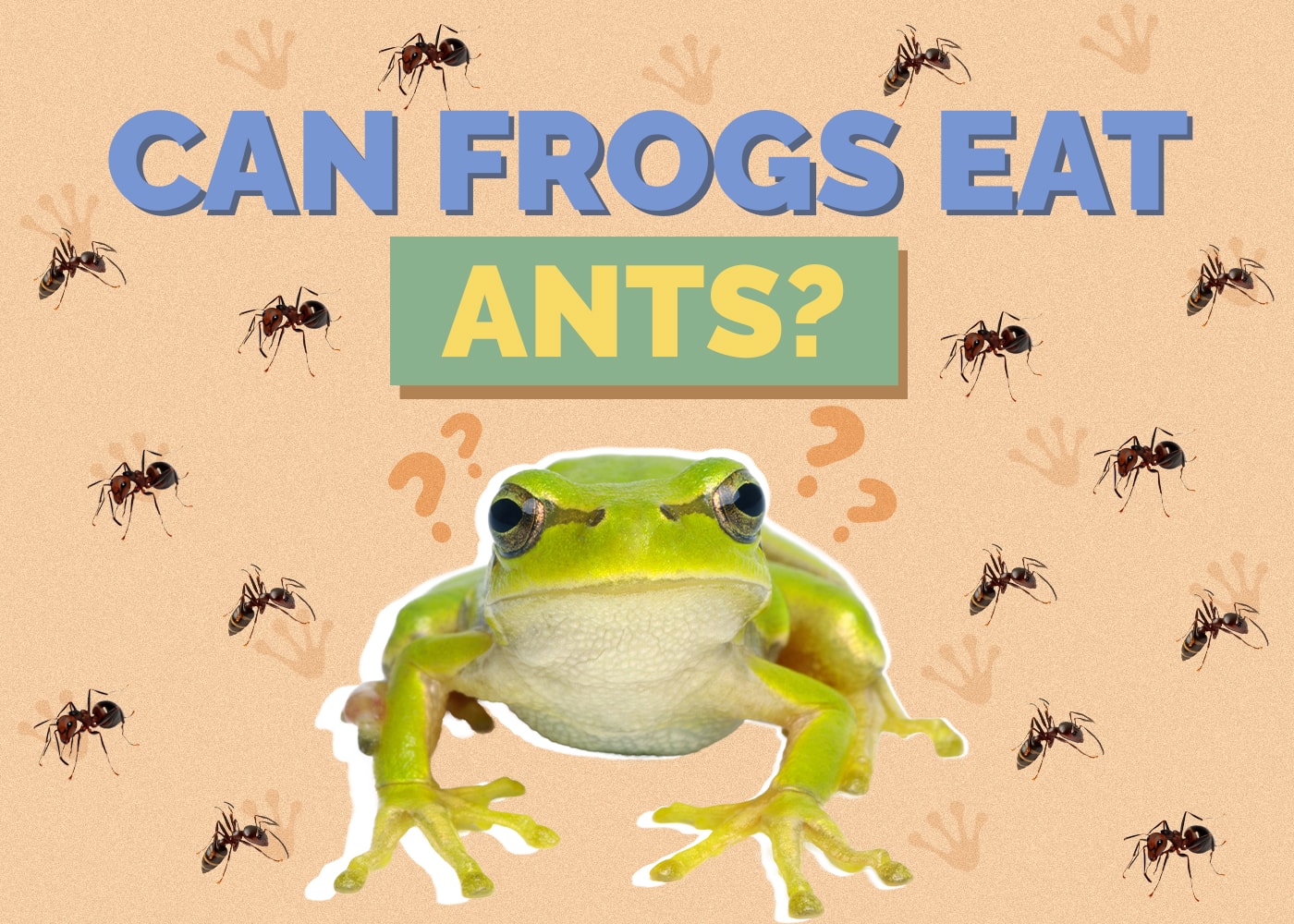
Frogs are fascinating pets that have a unique diet, including invertebrates like insects and arachnids. Most pet stores stock farm-bred and raised diets for pet frogs, including ants. While ants are generally safe for most captive frog species, not every ant species is a safe choice. Read on to learn more.
Are Ants Safe for Frogs?
Like crickets, ants can be a safe addition to your frog’s diet. In their natural habitat, ants are found all over the forest floor and on plants, so they’re easy for frogs to snatch up. They’re also found in large groups, giving frogs a big meal at one time.
Ants are usually safe for frogs, as they are small and less likely to do damage to a frog like a hornworm or a spider.
That said, some ant species are not safe for a frog to eat. Fire ants, for example, can sting and cause hives that itch or burn. Bullet ants, harvester ants, and bulldog ants also pack some serious stings that may bother some frog species.
Fortunately, common ants you’ll find at pet stores or ants that you raise in your own ant farm are unlikely to present a risk to your frog.
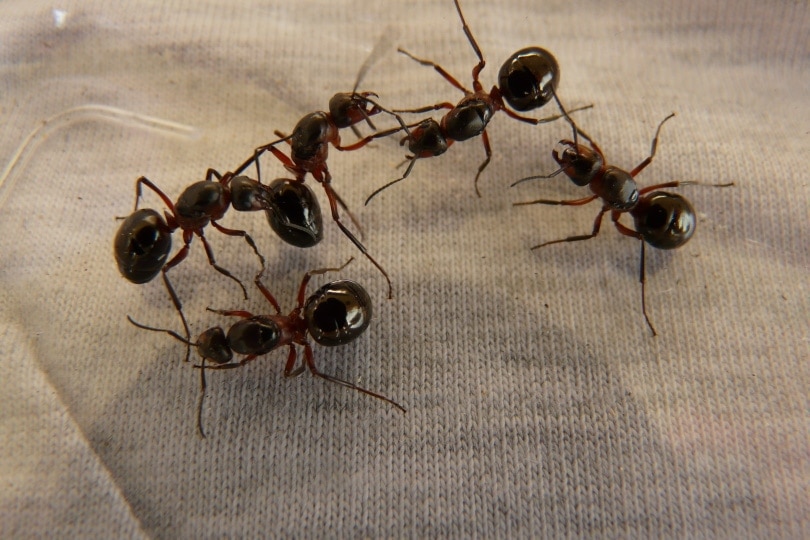
Captive Frog Diet
In the wild, frogs are opportunistic carnivores that subsist on a diet of insects, earthworms, caterpillars, crickets, grasshoppers, snails, slugs, spiders, and minnows. Some larger species will even eat mice!
In captivity, you can come close to your frog’s natural diet with a combination of live and pellet foods. Commercial diets provide a lot of your frog’s nutrition, including vitamins and minerals that it can’t get from live insects.
In addition to pellets, frogs can eat plenty of the insects available at pet stores, including crickets, Dubia roaches, soldier flies, earthworms, redworms, fruit flies, and mealworms or superworms. Along with providing your frog with additional nutrients, these invertebrates allow your frog to exercise its predatory instinct by “hunting” a live animal.
If you have a large frog species that eats rodents in the wild, it may be appropriate to feed pinky or fuzzy mice occasionally—once or twice a month. Feeding too many mice can lead to obesity, so it’s important to limit them.
Keep in mind that these are general food options. Each frog species will have its own dietary requirements and appropriate insects to feed, which may or may not include ants. The prey items need to be appropriately sized as well. Feeding prey animals that are too small will leave your frog hungry while feeding prey animals that are too large will make feeding difficult.
Conclusion
Ants are one of the many insects that most frog species eat in the wild. If you want to feed ants to your frog, it’s important to be careful of the ant species—some can sting or bite your frog. You should also check that ants are the appropriate size and nutrition for your specific frog species, which is usually determined by the prey animals it would encounter in the wild.
Related Read:
- Can Pacman Frogs Eat Superworms? Vet-Reviewed Facts & Tips
- Can Frogs Eat Mealworms? Vet-Approved Nutrition Guidelines
Featured Photo Credit: frank60, Shutterstock


